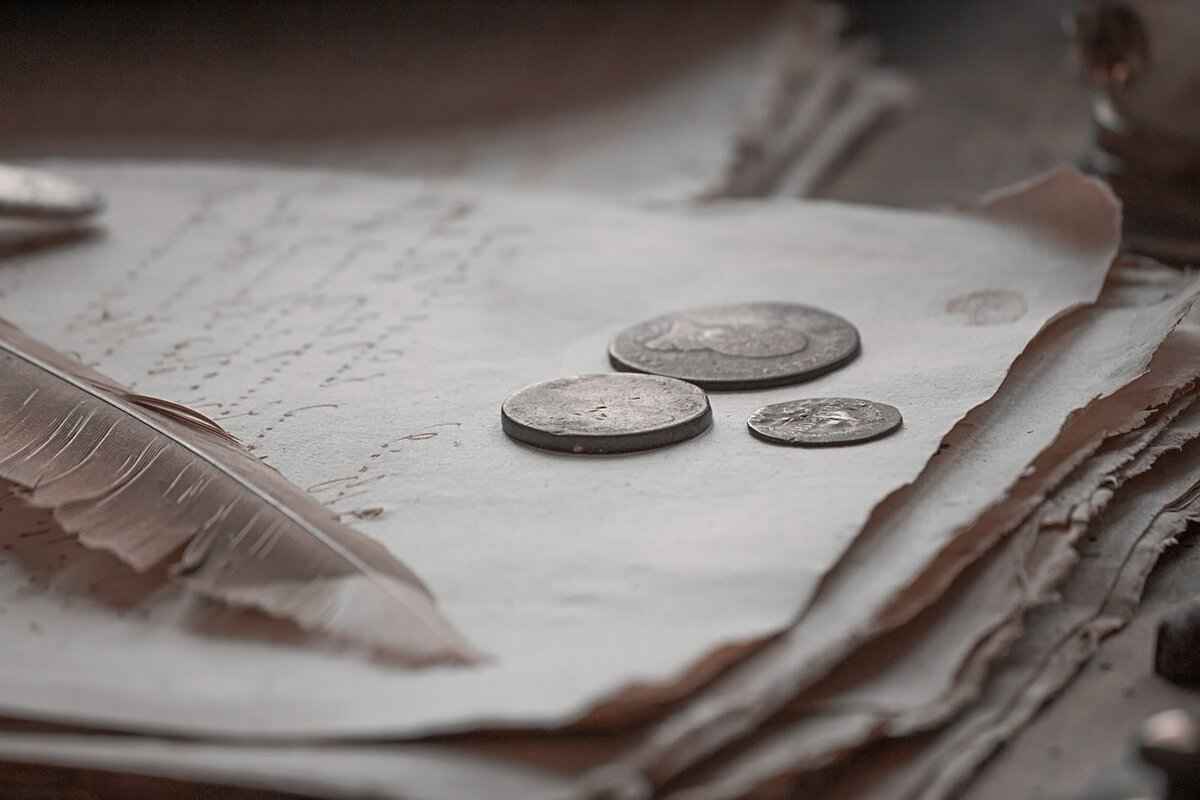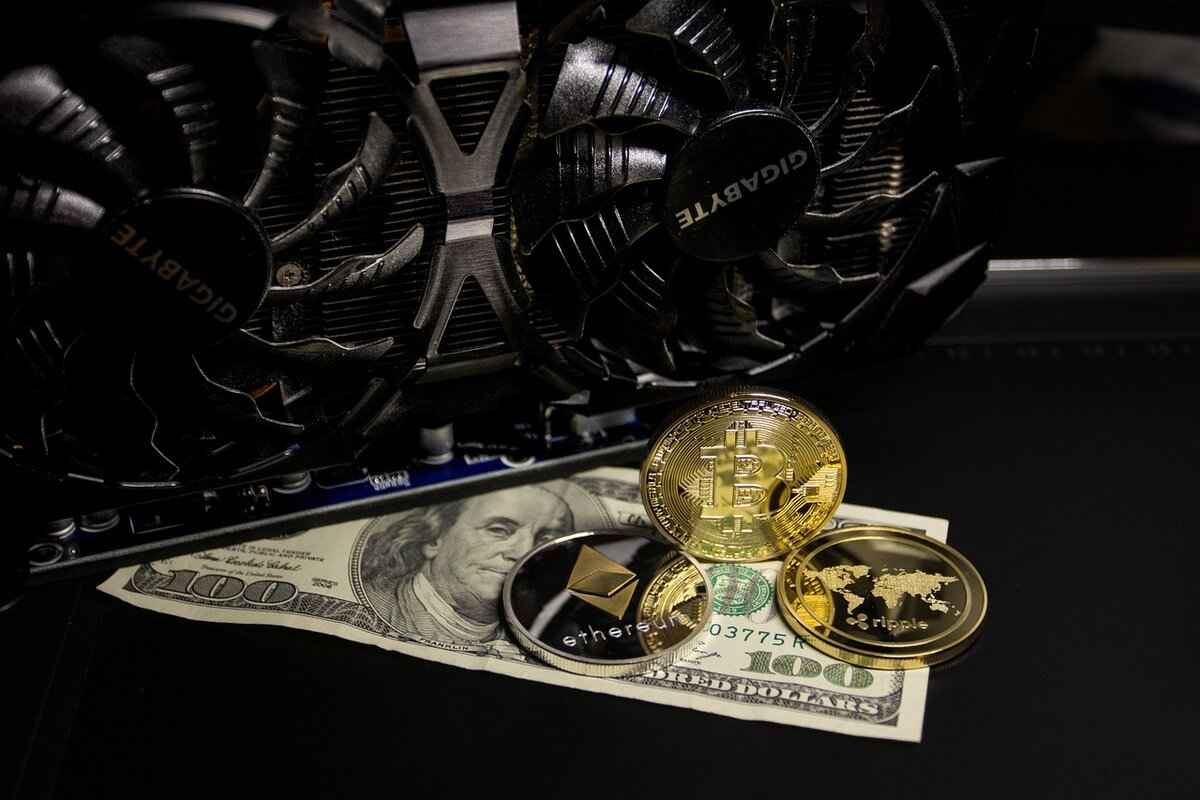This article explores Coyyn, a rising player in the digital finance sector, examining its features, benefits, and the potential impact on the financial landscape.
What is Coyyn?
Coyyn is an innovative digital finance platform designed to simplify transactions, savings, and investments. By leveraging blockchain technology, it offers secure and efficient financial solutions to users worldwide. Users can engage with the platform through a user-friendly interface that caters to both novices and seasoned investors alike.
How Does Coyyn Work?
Understanding the operational mechanics of Coyyn is essential. The platform utilizes smart contracts and decentralized finance (DeFi) protocols to facilitate seamless transactions. This integration allows users to engage with their finances in a more autonomous manner, reducing reliance on traditional banking systems.
Blockchain Technology Behind Coyyn
Coyyn operates on a robust blockchain infrastructure, ensuring transparency and security in all transactions. This technology minimizes fraud risk and enhances user trust in the platform. With real-time transaction tracking, users can monitor their activities and maintain control over their assets.
Decentralization and User Control
Decentralization is a core principle of Coyyn, empowering users with greater control over their assets. This shift from traditional banking systems represents a significant advantage for users seeking autonomy. By removing intermediaries, Coyyn allows users to manage their finances directly, leading to a more personalized financial experience.
Smart Contracts Explained
Smart contracts are self-executing contracts with the terms directly written into code. Coyyn employs these contracts to automate processes, reducing the need for intermediaries and expediting transactions. This feature not only enhances efficiency but also decreases the likelihood of human error.
Features of Coyyn
Coyyn offers a variety of features aimed at enhancing user experience. From user-friendly interfaces to advanced security measures, these features cater to both novice and experienced users. For instance, the platform provides educational resources to help users understand the intricacies of digital finance.
Benefits of Using Coyyn
Utilizing Coyyn presents numerous benefits, including lower transaction fees, faster processing times, and enhanced security. These advantages make it an attractive option for digital finance enthusiasts. With Coyyn, users can expect a streamlined experience that prioritizes their financial goals.
Cost Efficiency
Coyyn’s fee structure is designed to be competitive, ensuring users can save on transaction costs compared to traditional financial institutions. This cost efficiency can significantly impact users’ overall financial health, allowing them to allocate funds to other investments or savings.
Speed of Transactions
The speed at which transactions are processed on Coyyn is a standout feature. Users can expect near-instantaneous transfers, making it ideal for both personal and business transactions. This rapid processing capability is particularly beneficial in today’s fast-paced financial environment.
Security Measures in Coyyn
Security is paramount in digital finance. Coyyn implements multiple layers of security protocols to protect user data and funds, ensuring a safe environment for all transactions. This commitment to security fosters confidence among users, encouraging broader adoption of the platform.
Encryption and Data Protection
Coyyn employs advanced encryption techniques to safeguard user information. This focus on data protection helps to build trust and confidence among users. By prioritizing security, Coyyn ensures that user data remains confidential and protected from potential breaches.
Two-Factor Authentication
To enhance security further, Coyyn offers two-factor authentication (2FA). This additional layer of security requires users to verify their identity through a second method, reducing the risk of unauthorized access. Such measures are essential in today’s digital landscape, where cyber threats are prevalent.
Future of Coyyn in Digital Finance
As digital finance continues to evolve, Coyyn’s innovative approach positions it well for future growth. The platform’s adaptability and commitment to user needs will likely drive its success. By staying ahead of market trends, Coyyn is poised to become a significant player in the financial sector.
Market Trends Influencing Coyyn
Emerging trends in the digital finance sector, such as increased adoption of cryptocurrencies and growing demand for decentralized finance, are shaping Coyyn’s strategies and offerings. Understanding these trends will help users navigate the evolving financial landscape.
Potential Challenges Ahead
Despite its promising outlook, Coyyn may face challenges, including regulatory hurdles and competition from established players. Addressing these challenges will be crucial for its long-term success. Continuous innovation and user feedback will be vital in overcoming potential obstacles.
How to Get Started with Coyyn
For those interested in exploring Coyyn, understanding the onboarding process is essential. This section outlines the steps to create an account and start using the platform. By following these steps, users can quickly immerse themselves in the world of digital finance.
Creating an Account
Getting started with Coyyn involves a straightforward account creation process. Users need to provide basic information and complete a verification process to ensure security. This initial step is critical in establishing a safe and secure account.
Exploring the Platform
Once registered, users can navigate the platform’s features and tools. Familiarizing oneself with the interface and available options will enhance the overall experience. Coyyn also provides tutorials and guides to help users maximize their use of the platform.
Community and Support in Coyyn
Coyyn fosters a vibrant community of users and offers robust customer support. Engaging with the community can provide valuable insights and enhance the user experience. By participating in discussions, users can learn from one another and share best practices.
Community Engagement
Participating in Coyyn’s community forums and discussions allows users to share experiences, tips, and strategies, fostering a collaborative environment that benefits all members. This sense of community is essential for user retention and satisfaction.
Customer Support Services
Coyyn provides various customer support options, including live chat and email assistance. This commitment to user support ensures that help is readily available when needed, enhancing the overall user experience.

What is Coyyn?
Coyyn is a groundbreaking digital finance platform that aims to revolutionize the way individuals manage their finances. By combining advanced technology with user-friendly design, Coyyn simplifies various financial operations, including transactions, savings, and investments. At its core, Coyyn leverages the power of blockchain technology to provide secure and efficient financial solutions to users around the globe.
One of the standout features of Coyyn is its commitment to transparency and security. Traditional financial systems often involve multiple intermediaries, which can lead to delays, increased costs, and potential security risks. In contrast, Coyyn’s use of blockchain eliminates many of these issues by allowing peer-to-peer transactions. This not only enhances the speed of transactions but also significantly reduces the risk of fraud. With Coyyn, users can be assured that their financial data is protected through state-of-the-art encryption methods.
Furthermore, Coyyn’s platform is designed to cater to both novice and experienced users. The intuitive interface allows individuals with little to no financial background to navigate the system easily. For more experienced users, advanced features such as smart contracts provide the ability to automate complex transactions without the need for intermediaries. This flexibility makes Coyyn an attractive option for a wide range of users, from casual savers to serious investors.
Coyyn also emphasizes the importance of user control. By adopting a decentralized approach, users have greater authority over their assets. This shift away from traditional banking systems empowers individuals to manage their finances according to their unique needs and preferences. The ability to engage directly with their financial assets fosters a sense of ownership and responsibility that is often lacking in conventional banking environments.
In summary, Coyyn represents a significant advancement in the digital finance landscape. By harnessing the power of blockchain technology, it provides users with a secure, efficient, and user-friendly platform for managing their financial transactions. As the world continues to embrace digital finance, Coyyn is poised to become a key player in this evolving sector, offering innovative solutions that meet the demands of modern users.

How Does Coyyn Work?
Coyyn: How Does It Work?Understanding the operational mechanics of Coyyn is essential for anyone looking to navigate the evolving landscape of digital finance. This platform is at the forefront of innovation, utilizing cutting-edge technologies to redefine user experiences in financial transactions. At the heart of Coyyn’s functionality are smart contracts and decentralized finance (DeFi) protocols, which work together to create a seamless and engaging environment for users.
Smart Contracts: The Backbone of Coyyn
At its core, Coyyn employs smart contracts, which are self-executing contracts with the terms of the agreement directly written into code. These contracts automate and enforce the execution of agreements, eliminating the need for intermediaries. This not only speeds up transactions but also reduces costs associated with traditional financial systems. For example, if a user wants to send funds to another user, a smart contract ensures that the transaction occurs automatically once the specified conditions are met.
Decentralized Finance (DeFi) Protocols
Coyyn’s integration of DeFi protocols allows users to engage in various financial activities without relying on centralized institutions. This decentralization empowers users by providing them with more control over their assets. Users can lend, borrow, and trade assets directly on the platform, facilitating a more efficient and transparent financial ecosystem. By leveraging blockchain technology, Coyyn ensures that all transactions are recorded on an immutable ledger, enhancing security and trust.
The Role of Blockchain Technology
Coyyn operates on a robust blockchain infrastructure, which is crucial for maintaining transparency and security. Each transaction is verified by a network of nodes, making it nearly impossible for fraudulent activities to occur. This level of security minimizes the risk of hacks and breaches, which are prevalent in traditional banking systems. Users can feel confident knowing that their funds and data are protected by advanced cryptographic techniques.
User Engagement and Interface
The user interface of Coyyn is designed with user engagement in mind. It is intuitive and easy to navigate, catering to both novice and experienced users. The platform offers various tools and features that enhance the user experience, such as real-time analytics, portfolio management, and educational resources. This focus on usability helps users make informed decisions and engage more actively with their financial activities.
Transaction Efficiency
One of the standout features of Coyyn is its transaction efficiency. Users can expect near-instantaneous transfers, which is a significant advantage over traditional banking methods that often involve delays. This speed is particularly beneficial for businesses and individuals who require quick access to their funds. By utilizing smart contracts and DeFi protocols, Coyyn ensures that transactions are processed swiftly and securely.
Community and Support
Coyyn fosters a vibrant community where users can share insights and strategies, enhancing the overall experience. The platform provides robust customer support, including live chat and email assistance, ensuring that users have access to help whenever needed. This commitment to community engagement and support is vital for building trust and loyalty among users.
In summary, understanding how Coyyn works involves recognizing the integral role of smart contracts, DeFi protocols, and blockchain technology in creating a secure and efficient financial platform. By prioritizing user engagement and transaction efficiency, Coyyn is poised to make a significant impact on the digital finance landscape.
Blockchain Technology Behind Coyyn
Coyyn operates on a robust blockchain infrastructure, which is fundamental to its mission of providing a secure and efficient digital finance platform. Blockchain technology serves as the backbone of Coyyn, ensuring that every transaction is recorded in a transparent and immutable manner. This means that once a transaction is added to the blockchain, it cannot be altered or deleted, which greatly reduces the risk of fraud and enhances user trust.
The decentralized nature of blockchain technology allows Coyyn to eliminate the need for intermediaries, such as banks and financial institutions. This not only speeds up transaction times but also reduces costs associated with traditional banking methods. Users can engage in peer-to-peer transactions, which are processed almost instantaneously, making Coyyn an attractive option for those seeking efficiency in their financial dealings.
One of the key features of Coyyn’s blockchain is its smart contract functionality. Smart contracts are self-executing agreements with the terms directly written into code. These contracts automatically enforce and execute agreements based on predefined conditions, minimizing the need for human intervention and reducing the potential for errors. For example, a smart contract could facilitate a loan agreement where funds are automatically released to the borrower once specific criteria are met, streamlining the entire process.
Moreover, Coyyn’s blockchain employs advanced cryptographic techniques to secure user data and transaction details. Each transaction is encrypted and linked to the previous one, creating a chain of blocks that is nearly impossible to tamper with. This high level of security is essential in building user confidence, especially in an era where data breaches and cyber threats are prevalent.
Another significant advantage of Coyyn’s blockchain technology is its ability to provide real-time auditing. Unlike traditional financial systems where audits can take weeks or months, Coyyn’s blockchain allows for immediate verification of transactions. This feature is particularly beneficial for businesses that require transparency and accountability in their financial operations.
In addition to security and efficiency, Coyyn’s blockchain supports a wide range of financial services, from simple transactions to complex investment strategies. Users can leverage the platform’s capabilities to manage their assets, make investments, and participate in decentralized finance (DeFi) projects, all while enjoying the peace of mind that comes from using a secure and transparent system.
Overall, the integration of blockchain technology into Coyyn’s platform not only enhances security and transparency but also empowers users by giving them greater control over their financial activities. As the digital finance landscape continues to evolve, Coyyn’s commitment to leveraging innovative technology positions it as a leader in the industry.
Decentralization and User Control
are pivotal aspects that define the evolution of modern financial systems. In the context of Coyyn, decentralization goes beyond mere buzzwords; it represents a fundamental shift in how users interact with their financial assets. This change is particularly significant when compared to traditional banking models, where control is often centralized and limited.
At its core, decentralization empowers users by giving them direct control over their assets, eliminating the need for intermediaries such as banks. In traditional finance, banks act as gatekeepers, managing transactions, savings, and investments. This control often comes with fees, delays, and restrictions that can frustrate users. By contrast, Coyyn leverages blockchain technology to create a transparent, peer-to-peer network where users can transact freely without the constraints imposed by traditional financial institutions.
One of the most significant advantages of decentralization is the enhanced autonomy it offers. Users can manage their assets in real-time, making decisions based on their individual needs and preferences. This level of control is particularly appealing in today’s fast-paced digital economy, where immediate access to funds can be crucial. With Coyyn, users can execute transactions, invest, and save without waiting for bank approvals or dealing with bureaucratic hurdles.
Moreover, decentralization fosters a sense of community among users. As individuals engage with the platform, they contribute to a collective ecosystem that thrives on collaboration and shared knowledge. This community-centric approach not only enhances user experience but also encourages the sharing of tips and strategies, further empowering users to make informed financial decisions.
Security is another critical benefit of decentralization. In traditional banking systems, users often face risks associated with centralized data storage, such as hacking and data breaches. Coyyn addresses these concerns by utilizing blockchain technology, which ensures that user data and transactions are secure and tamper-proof. This decentralized model reduces the vulnerability of user assets, instilling greater confidence in the platform.
In summary, the decentralization principle at the heart of Coyyn represents a transformative shift in the financial landscape. By empowering users with greater control over their assets, enhancing security, and fostering community engagement, Coyyn positions itself as a leader in the digital finance sector. As more individuals seek autonomy and flexibility in managing their finances, the demand for decentralized platforms like Coyyn is likely to grow, reshaping the future of finance.
Smart Contracts Explained
In the rapidly evolving world of digital finance, smart contracts have emerged as a revolutionary tool that transforms how agreements are made and executed. These self-executing contracts have their terms directly written into code, allowing for automation and efficiency in various processes. At the heart of Coyyn’s operations, smart contracts play a pivotal role in facilitating transactions while ensuring security and transparency.
Understanding Smart Contracts
Smart contracts are essentially digital agreements that automatically enforce and execute terms without the need for intermediaries. They operate on blockchain technology, which provides a decentralized and immutable ledger. This means that once a smart contract is deployed, it cannot be altered, ensuring that all parties adhere to the agreed-upon terms. The automation aspect significantly reduces the time and effort typically required to execute contracts, making processes faster and more efficient.
How Coyyn Utilizes Smart Contracts
Coyyn employs smart contracts to streamline various financial processes. For instance, when a user initiates a transaction, a smart contract automatically verifies the terms and conditions, executes the transfer of funds, and updates the blockchain ledger—all without human intervention. This not only expedites the transaction but also minimizes the risk of errors or fraud. By reducing reliance on intermediaries, Coyyn can offer lower fees and faster processing times, providing a competitive edge in the digital finance landscape.
Benefits of Smart Contracts
- Increased Efficiency: Traditional contracts often involve lengthy processes and numerous intermediaries. Smart contracts eliminate these inefficiencies, allowing for quicker execution.
- Enhanced Security: With their foundation on blockchain technology, smart contracts offer a high level of security. The decentralized nature of blockchain makes it difficult for malicious actors to tamper with contract terms.
- Cost Savings: By automating processes and reducing the need for intermediaries, users can save on transaction fees. This cost efficiency is particularly attractive in the competitive digital finance market.
- Transparency: All transactions executed via smart contracts are recorded on the blockchain, providing a transparent and publicly accessible trail that enhances trust among users.
Challenges and Considerations
Despite their numerous advantages, smart contracts also face certain challenges. One significant concern is the potential for coding errors. If a smart contract is not programmed correctly, it could lead to unintended consequences or financial loss. Additionally, the legal status of smart contracts varies by jurisdiction, which can complicate enforcement in traditional legal systems.
Moreover, the reliance on blockchain technology means that users must have a basic understanding of how it works to navigate potential risks effectively. As the technology matures, ongoing education and awareness will be crucial for users to fully leverage the benefits of smart contracts.
The Future of Smart Contracts in Digital Finance
As digital finance continues to evolve, the role of smart contracts is expected to expand significantly. With increasing adoption of blockchain technology and decentralized finance (DeFi) solutions, more platforms like Coyyn are likely to integrate smart contracts into their operations. This shift not only enhances user experience but also paves the way for innovative financial products and services that were previously unimaginable.
In conclusion, smart contracts represent a transformative force in the realm of digital finance. By automating processes, enhancing security, and offering cost savings, they are redefining how agreements are made and executed. As platforms like Coyyn harness the power of smart contracts, users can look forward to a more efficient and transparent financial future.
Features of Coyyn
Coyyn is rapidly gaining traction in the digital finance arena, primarily due to its diverse features designed to enhance user experience and streamline financial activities. This platform caters to a broad audience, from beginners to seasoned investors, ensuring that everyone can navigate its offerings with ease.
- User-Friendly Interface: One of the standout features of Coyyn is its intuitive user interface. This design prioritizes simplicity, allowing users to easily access various functionalities without a steep learning curve. The layout is clean and organized, making it easy for users to find what they need quickly.
- Advanced Security Measures: Security is a top priority for Coyyn. The platform implements cutting-edge security protocols, including encryption and multi-factor authentication, to protect user data and assets. This commitment to security fosters trust and confidence among users, which is crucial in the digital finance space.
- Seamless Transactions: Coyyn employs blockchain technology to facilitate fast and secure transactions. Users can expect near-instantaneous processing times, eliminating the delays commonly associated with traditional banking systems. This feature is particularly beneficial for businesses and individuals who require quick access to their funds.
- Comprehensive Financial Tools: The platform offers a variety of tools designed to assist users in managing their finances effectively. From budgeting tools to investment tracking, Coyyn provides resources that empower users to make informed decisions about their financial futures.
- Decentralized Finance (DeFi) Integration: Coyyn embraces the principles of decentralized finance, allowing users to engage with a variety of DeFi protocols. This integration enables users to lend, borrow, and earn interest on their assets, providing additional avenues for financial growth.
- Mobile Accessibility: Recognizing the importance of mobility, Coyyn offers a fully functional mobile application. This allows users to manage their finances on the go, providing flexibility and convenience that aligns with today’s fast-paced lifestyle.
- Educational Resources: Coyyn is committed to empowering its users through education. The platform provides a wealth of resources, including tutorials, articles, and webinars, to help users understand digital finance concepts and make informed decisions.
The combination of these features positions Coyyn as a formidable player in the digital finance landscape. By focusing on user experience and security, Coyyn not only attracts new users but also retains existing ones, creating a thriving community that benefits from its innovative offerings. Whether you are a novice looking to learn or an expert seeking advanced tools, Coyyn has something to offer everyone in the realm of digital finance.

Benefits of Using Coyyn
Utilizing Coyyn presents a multitude of benefits that make it an appealing choice for digital finance enthusiasts. This platform is designed to address the common pain points associated with traditional financial systems, offering users a streamlined and efficient experience. Below are some of the key advantages that Coyyn brings to the table:
- Lower Transaction Fees: One of the most significant benefits of using Coyyn is its cost-effective fee structure. Compared to traditional banks and financial institutions, Coyyn offers lower transaction fees, which can lead to substantial savings, especially for frequent users. This affordability allows individuals and businesses to maximize their financial resources.
- Faster Processing Times: In today’s fast-paced world, speed is crucial. Coyyn excels in this area by ensuring that transactions are processed almost instantaneously. Whether it’s sending money to a friend or completing a business transaction, users can expect quick turnaround times that enhance their overall experience.
- Enhanced Security: Security is a top priority in the realm of digital finance, and Coyyn does not disappoint. The platform employs advanced security protocols to protect user data and funds. By utilizing blockchain technology, Coyyn minimizes the risks of fraud and hacking, providing users with peace of mind when conducting transactions.
- Accessibility: Coyyn is designed to be user-friendly, making it accessible to individuals regardless of their technical expertise. The platform’s intuitive interface allows users to navigate easily, facilitating a seamless experience from account creation to transaction execution.
- Global Reach: Coyyn operates on a global scale, enabling users to engage in transactions across borders without the usual complications associated with international banking. This capability opens up new avenues for trade and personal finance, allowing users to connect with a worldwide network.
- Investment Opportunities: Beyond basic transactions, Coyyn provides users with opportunities to invest in various assets. This feature allows individuals to diversify their portfolios and potentially grow their wealth through innovative investment options.
- Community Support: Coyyn fosters a vibrant community of users who share insights, tips, and experiences. This collaborative environment not only enhances user engagement but also provides valuable resources for navigating the platform effectively.
In summary, the benefits of using Coyyn extend far beyond just lower fees and faster transactions. With its focus on security, accessibility, and community, Coyyn is positioned to become a leader in the digital finance landscape. As more users recognize these advantages, the platform is likely to gain traction and expand its user base, contributing to the ongoing evolution of financial technology.
Cost Efficiency
Coyyn: A New Name in the World of Digital FinanceThis article explores Coyyn, a rising player in the digital finance sector, examining its features, benefits, and the potential impact on the financial landscape.
Coyyn is an innovative digital finance platform designed to simplify transactions, savings, and investments. It leverages blockchain technology to offer secure and efficient financial solutions to users worldwide.
Understanding the operational mechanics of Coyyn is essential. The platform utilizes smart contracts and decentralized finance (DeFi) protocols to facilitate seamless transactions and enhance user engagement.
Coyyn’s fee structure is crafted with user savings in mind, ensuring that individuals and businesses can benefit from lower transaction costs compared to traditional financial institutions. This competitive pricing model is not just a marketing tactic; it is a fundamental aspect of Coyyn’s mission to democratize finance.
- Transparent Fee Structure: Coyyn provides a clear breakdown of its fees, allowing users to understand exactly what they are paying for. This transparency fosters trust and enables users to make informed financial decisions.
- Lower Transaction Fees: Traditional banks and financial services often impose hefty fees for transactions, especially across borders. In contrast, Coyyn’s fees are significantly lower, which can lead to substantial savings over time.
- Impact on Financial Health: The cost efficiency provided by Coyyn can have a profound impact on users’ overall financial health. By reducing transaction costs, users can allocate more resources towards savings and investments, ultimately enhancing their financial stability.
Additionally, this cost efficiency is not just beneficial for individual users; it also extends to businesses. Companies can save on operational costs by using Coyyn for transactions, which can enhance their profitability and allow for reinvestment into growth opportunities. This creates a ripple effect in the economy, promoting a more vibrant financial ecosystem.
Moreover, the platform’s emphasis on cost efficiency aligns with the growing trend of financial inclusivity. By lowering barriers to entry, Coyyn makes it easier for underserved populations to access essential financial services. This inclusivity can contribute to overall economic development, as more individuals gain the tools they need to manage their finances effectively.
In summary, Coyyn’s focus on cost efficiency not only benefits users by lowering transaction costs but also enhances their overall financial health. By providing a transparent and competitive fee structure, Coyyn positions itself as a leader in the digital finance landscape, paving the way for a more inclusive and efficient financial future.
The speed at which transactions are processed on Coyyn is a standout feature. Users can expect near-instantaneous transfers, making it ideal for both personal and business transactions.
Security is paramount in digital finance. Coyyn implements multiple layers of security protocols to protect user data and funds, ensuring a safe environment for all transactions.
Coyyn employs advanced encryption techniques to safeguard user information. This focus on data protection helps to build trust and confidence among users.
To enhance security further, Coyyn offers two-factor authentication (2FA). This additional layer of security requires users to verify their identity through a second method, reducing the risk of unauthorized access.
As digital finance continues to evolve, Coyyn’s innovative approach positions it well for future growth. The platform’s adaptability and commitment to user needs will likely drive its success.
Emerging trends in the digital finance sector, such as increased adoption of cryptocurrencies and growing demand for decentralized finance, are shaping Coyyn’s strategies and offerings.
Despite its promising outlook, Coyyn may face challenges, including regulatory hurdles and competition from established players. Addressing these challenges will be crucial for its long-term success.
For those interested in exploring Coyyn, understanding the onboarding process is essential. This section outlines the steps to create an account and start using the platform.
Getting started with Coyyn involves a straightforward account creation process. Users need to provide basic information and complete a verification process to ensure security.
Once registered, users can navigate the platform’s features and tools. Familiarizing oneself with the interface and available options will enhance the overall experience.
Coyyn fosters a vibrant community of users and offers robust customer support. Engaging with the community can provide valuable insights and enhance the user experience.
Participating in Coyyn’s community forums and discussions allows users to share experiences, tips, and strategies, fostering a collaborative environment that benefits all members.
Coyyn provides various customer support options, including live chat and email assistance. This commitment to user support ensures that help is readily available when needed.
Speed of Transactions
The speed at which transactions are processed on Coyyn is a standout feature that sets it apart in the crowded digital finance landscape. In today’s fast-paced world, where time is of the essence, the ability to conduct transactions almost instantaneously is not just a luxury but a necessity. Users can expect near-instantaneous transfers, making it ideal for both personal and business transactions.
One of the key factors contributing to this remarkable speed is the underlying blockchain technology that Coyyn utilizes. Traditional banking systems often involve multiple intermediaries and lengthy processing times, which can lead to delays and frustration. In contrast, Coyyn’s decentralized approach eliminates the need for these intermediaries, allowing for direct peer-to-peer transactions that occur in real-time.
Moreover, Coyyn employs smart contracts to automate various processes, further enhancing transaction speed. These self-executing contracts are programmed with specific conditions that, when met, trigger immediate actions without the need for manual intervention. This not only expedites the transaction process but also reduces the potential for human error, ensuring that funds are transferred efficiently and securely.
For businesses, the speed of transactions can significantly impact cash flow and operational efficiency. Imagine a scenario where a business needs to settle payments with suppliers or receive funds from clients. With Coyyn, these transactions can be completed in mere seconds, allowing businesses to maintain liquidity and respond swiftly to market demands. This agility can provide a competitive edge in an ever-evolving marketplace.
- Instant Transfers: Users can send and receive funds within seconds, regardless of geographical barriers.
- Reduced Waiting Times: Transactions that typically take hours or even days in traditional banking are completed almost instantly on Coyyn.
- Enhanced User Experience: The quick processing times contribute to a seamless user experience, encouraging more frequent transactions.
Additionally, the speed of transactions does not compromise security. Coyyn’s robust security protocols ensure that all transactions are protected against fraud and unauthorized access. This balance of speed and security is crucial, as users can confidently engage in transactions without worrying about potential risks.
In conclusion, the rapid processing speed of transactions on Coyyn is a game-changer in the digital finance realm. By leveraging advanced technology and innovative practices, Coyyn not only meets but exceeds user expectations, making it an attractive option for anyone looking to streamline their financial dealings. Whether for personal use or business operations, the near-instantaneous transaction capabilities of Coyyn position it as a leader in the evolving landscape of digital finance.

Security Measures in Coyyn
In the rapidly evolving landscape of digital finance, security is not just an option; it is a necessity. Coyyn recognizes this imperative and has implemented a comprehensive suite of security measures to safeguard user data and funds. This commitment to security not only protects users but also fosters trust, which is essential for the platform’s success.
Multiple Layers of Security Protocols
Coyyn employs multiple layers of security protocols to create a robust defense against potential threats. These layers include advanced encryption, two-factor authentication, and continuous monitoring of transactions. By utilizing these measures, Coyyn ensures that user data remains confidential and that funds are secure from unauthorized access.
Advanced Encryption Techniques
One of the cornerstones of Coyyn’s security is its use of advanced encryption techniques. Data transmitted between users and the platform is encrypted using state-of-the-art algorithms, making it nearly impossible for malicious actors to intercept sensitive information. This encryption not only protects personal information but also secures transaction details, ensuring that all financial activities are conducted in a safe environment.
Two-Factor Authentication (2FA)
To further enhance security, Coyyn implements two-factor authentication (2FA). This method requires users to provide two forms of verification before accessing their accounts. The first factor is typically a password, while the second may involve a one-time code sent to the user’s mobile device. This additional layer of security significantly reduces the risk of unauthorized access, ensuring that only legitimate users can access their accounts.
Continuous Monitoring and Fraud Detection
Coyyn also invests in continuous monitoring and fraud detection systems. These systems analyze transaction patterns in real-time, flagging any suspicious activity for further investigation. By employing machine learning algorithms, Coyyn can identify potential threats quickly and take action to mitigate risks before they escalate. This proactive approach to security is crucial in maintaining the integrity of the platform.
User Education and Awareness
In addition to technical measures, Coyyn emphasizes the importance of user education. The platform provides resources and guidelines to help users understand best practices for securing their accounts. This includes tips on creating strong passwords, recognizing phishing attempts, and safely managing personal information online. By empowering users with knowledge, Coyyn enhances overall security and reduces the likelihood of user-related vulnerabilities.
Regular Security Audits
To ensure that its security measures remain effective, Coyyn conducts regular security audits. These audits assess the platform’s security posture, identifying potential weaknesses and areas for improvement. By routinely evaluating its security infrastructure, Coyyn can adapt to emerging threats and maintain a high level of protection for its users.
Compliance with Regulatory Standards
Coyyn adheres to industry best practices and compliance with regulatory standards. This commitment ensures that the platform meets legal requirements for data protection and financial transactions. By aligning with regulations such as GDPR and AML (Anti-Money Laundering) laws, Coyyn not only protects its users but also builds credibility within the digital finance industry.
In summary, Coyyn’s multifaceted approach to security encompasses advanced encryption, two-factor authentication, continuous monitoring, user education, regular audits, and compliance with regulatory standards. These measures work collectively to create a secure environment for users, fostering trust and confidence in the platform. As digital finance continues to grow, Coyyn’s dedication to security will be a key factor in its success and user satisfaction.
Encryption and Data Protection
In today’s digital landscape, the protection of personal information has become a paramount concern for users worldwide. With the rise of cyber threats and data breaches, it is essential for platforms like Coyyn to implement robust security measures. One of the most effective ways to ensure user data safety is through advanced encryption techniques. These techniques not only protect sensitive information but also foster trust and confidence among users.
Coyyn employs state-of-the-art encryption protocols to secure user data during transmission and storage. This involves converting plaintext information into an unreadable format, which can only be decrypted by authorized parties who possess the correct decryption keys. By utilizing encryption, Coyyn ensures that even if data is intercepted during transmission, it remains protected and inaccessible to unauthorized individuals.
Furthermore, Coyyn’s commitment to data protection extends beyond encryption. The platform regularly updates its security protocols to counter evolving threats. This proactive approach is crucial in maintaining the integrity of user data. In addition to encryption, Coyyn incorporates multi-layered security measures, including firewalls and intrusion detection systems, to create a fortified environment against potential breaches.
Another significant aspect of Coyyn’s data protection strategy is its adherence to regulatory standards. By complying with international data protection regulations, such as the General Data Protection Regulation (GDPR), Coyyn demonstrates its dedication to safeguarding user privacy. This compliance not only protects users but also enhances the platform’s credibility in the competitive digital finance landscape.
The focus on data protection also plays a vital role in user engagement. When users feel confident that their information is secure, they are more likely to engage actively with the platform. This trust is essential for building a loyal user base and encouraging new users to join. Coyyn’s emphasis on security is a key differentiator that sets it apart from other digital finance platforms.
Moreover, Coyyn provides users with educational resources about data protection and security best practices. By equipping users with knowledge on how to protect their own information, Coyyn empowers them to take an active role in their digital security. This initiative not only enhances user awareness but also reinforces the platform’s commitment to creating a safe financial environment.
In summary, the integration of advanced encryption techniques and comprehensive data protection measures is central to Coyyn’s operational framework. By prioritizing security, Coyyn not only protects user information but also builds a foundation of trust that is essential for long-term success in the digital finance sector. As users become increasingly aware of the importance of data security, Coyyn’s efforts in this area will undoubtedly contribute to its growth and reputation in the market.
Two-Factor Authentication
has become an essential component of online security, especially in the realm of digital finance. As cyber threats continue to evolve, platforms like Coyyn are implementing advanced security measures to protect their users. This article delves into the significance of two-factor authentication (2FA), how it works, and its benefits in safeguarding your financial transactions.
Two-factor authentication is a security process that requires users to provide two different authentication factors to verify their identity. This method significantly enhances security by adding an extra layer of protection beyond just a username and password. With the increasing frequency of data breaches and identity theft, 2FA is no longer just a recommendation; it is a necessity.
How Does Two-Factor Authentication Work?
- Something You Know: The first factor is typically something the user knows, such as a password or PIN.
- Something You Have: The second factor is something the user possesses, like a smartphone or hardware token that generates a one-time code.
When logging into their Coyyn account, users will first enter their password. After this, they will receive a second verification code via SMS, email, or an authenticator app. Only after entering this code will they gain access to their account. This process makes it exponentially more difficult for unauthorized users to gain access, as they would need both the password and the physical device that receives the second factor.
Benefits of Implementing Two-Factor Authentication
- Enhanced Security: The primary benefit of 2FA is the added security it provides. Even if a hacker manages to steal a user’s password, they will still be unable to access the account without the second factor.
- Reduced Risk of Fraud: By requiring two forms of verification, the likelihood of unauthorized access is significantly lowered, protecting users from potential financial losses.
- Increased User Confidence: Knowing that their accounts are better protected, users can engage more confidently with the platform, leading to greater satisfaction and loyalty.
Challenges and Considerations
While two-factor authentication greatly enhances security, it is not without its challenges. Users must ensure they have access to their second factor at all times. For instance, if a user loses their phone or does not have access to their email, they may face difficulties logging into their account. Therefore, it is crucial for platforms like Coyyn to offer backup options for 2FA, such as recovery codes or alternative verification methods.
Furthermore, some users may find the additional step cumbersome, potentially leading to frustration. However, educating users about the importance of 2FA and providing a seamless user experience can mitigate these concerns.
Conclusion
In summary, two-factor authentication is a vital security feature for Coyyn and other digital finance platforms. By requiring users to verify their identity through a second method, 2FA significantly reduces the risk of unauthorized access and enhances overall security. As digital financial transactions continue to rise, implementing robust security measures like 2FA will be crucial in protecting user data and building trust within the community.

Future of Coyyn in Digital Finance
The Future of Coyyn in Digital Finance
As the digital finance landscape continues to transform, Coyyn emerges as a promising contender poised for significant growth. This article delves into the factors that position Coyyn favorably in the evolving market, highlighting its innovative strategies, adaptability to user needs, and the broader implications for the financial ecosystem.
Emerging Trends Shaping Digital Finance
The digital finance sector is witnessing a plethora of trends that are reshaping how users interact with financial services. One notable trend is the increasing adoption of cryptocurrencies. As more individuals and businesses recognize the potential of digital currencies, platforms like Coyyn are well-positioned to meet this growing demand. By integrating cryptocurrency functionalities, Coyyn can attract a broader audience seeking flexible and modern financial solutions.
Decentralized Finance (DeFi) and Its Impact
Another critical trend is the rise of decentralized finance (DeFi). DeFi platforms are gaining traction due to their ability to provide financial services without traditional intermediaries. Coyyn’s commitment to decentralization empowers users, allowing them greater control over their assets. This shift not only enhances user autonomy but also aligns with the growing preference for transparent and accessible financial services.
Regulatory Landscape and Challenges
While the future appears bright for Coyyn, it is essential to acknowledge the potential challenges that lie ahead. The regulatory landscape for digital finance is constantly evolving, and Coyyn must navigate these changes effectively. Compliance with local and international regulations will be crucial in maintaining user trust and ensuring the platform’s longevity. Additionally, competition from established players in the market presents another hurdle that Coyyn must strategically overcome.
Technological Innovations Driving Growth
Technological advancements play a pivotal role in shaping the future of Coyyn. The platform’s use of blockchain technology not only enhances security but also fosters transparency, which is vital for building user confidence. As Coyyn continues to innovate, incorporating features such as artificial intelligence (AI) and machine learning could further streamline user experiences and optimize financial solutions.
User-Centric Approach to Product Development
A significant factor contributing to Coyyn’s potential success is its user-centric approach. By actively soliciting feedback and adapting its services to meet user needs, Coyyn ensures that it remains relevant in a fast-paced digital landscape. This commitment to understanding and addressing user pain points will likely lead to increased customer satisfaction and loyalty.
Community Engagement and Support
Coyyn’s emphasis on community engagement also sets it apart. By fostering a vibrant user community, the platform encourages collaboration and knowledge sharing. This not only enhances user experience but also positions Coyyn as a thought leader in the digital finance space. Furthermore, robust customer support services ensure that users have access to assistance whenever needed, further solidifying trust in the platform.
Conclusion: A Bright Horizon for Coyyn
In conclusion, Coyyn’s innovative approach, adaptability to market trends, and commitment to user satisfaction position it well for future growth in the digital finance sector. As the landscape continues to evolve, Coyyn’s ability to navigate challenges and leverage opportunities will be crucial in determining its success. With a focus on technology, user engagement, and regulatory compliance, Coyyn is poised to make a significant impact in the world of digital finance.
Market Trends Influencing Coyyn
The digital finance landscape is undergoing a transformative shift, and Coyyn is at the forefront of this evolution. As an innovative platform, it is essential to understand the **market trends** that are shaping its strategies and offerings. This exploration delves into the key trends influencing Coyyn, including the **surge in cryptocurrency adoption**, the rise of **decentralized finance (DeFi)**, and the increasing demand for **financial inclusivity**.
Surge in Cryptocurrency Adoption
The past few years have witnessed a remarkable surge in the adoption of cryptocurrencies. As more individuals and institutions recognize the potential of digital currencies, platforms like Coyyn are adapting to meet this growing demand. The increasing acceptance of cryptocurrencies for transactions, investments, and as a store of value has prompted Coyyn to integrate various cryptocurrencies into its offerings. This strategy not only enhances user experience but also positions Coyyn as a competitive player in the digital finance sector.
According to recent studies, a significant percentage of consumers are now comfortable using cryptocurrencies for everyday transactions. This shift is largely driven by the desire for **faster**, **cheaper**, and **more secure** payment methods. Coyyn’s ability to facilitate transactions using multiple cryptocurrencies aligns perfectly with this trend, allowing users to transact in their preferred digital assets seamlessly.
Rise of Decentralized Finance (DeFi)
Decentralized finance has emerged as a revolutionary force in the financial sector, challenging traditional banking systems. DeFi platforms offer users the ability to lend, borrow, and trade assets without the need for intermediaries. Coyyn is strategically positioning itself within this space by incorporating DeFi protocols into its platform. This move enables users to access a wide range of financial services directly, enhancing their control over their assets.
The DeFi movement is characterized by its emphasis on **transparency**, **security**, and **user empowerment**. By leveraging blockchain technology, Coyyn ensures that all transactions are recorded on a public ledger, fostering trust among users. Furthermore, the elimination of intermediaries not only reduces costs but also expedites transaction processes, making Coyyn an attractive option for users seeking efficiency.
Increasing Demand for Financial Inclusivity
As the digital finance landscape evolves, there is a growing emphasis on financial inclusivity. Many individuals, particularly in underbanked regions, lack access to traditional banking services. Coyyn recognizes this gap and is committed to providing solutions that cater to these underserved populations. By offering user-friendly interfaces and low transaction fees, Coyyn aims to democratize access to financial services.
The platform’s focus on inclusivity is evident in its efforts to educate users about digital finance. By providing resources and support, Coyyn empowers individuals to make informed financial decisions, fostering a sense of community among its users. This commitment to inclusivity not only enhances user engagement but also aligns with broader societal goals of reducing financial inequality.
Technological Innovations and Security Enhancements
In addition to the aforementioned trends, technological innovations play a crucial role in shaping Coyyn’s strategies. The platform continuously invests in advanced security measures to protect user data and funds. With cyber threats on the rise, ensuring robust security protocols is paramount for maintaining user trust.
Coyyn employs cutting-edge encryption technologies and multi-factor authentication to safeguard user accounts. This focus on security not only protects users but also positions Coyyn as a reliable option in the competitive digital finance landscape. As users become increasingly aware of security risks, platforms that prioritize safety will likely gain a competitive edge.
Conclusion
In summary, the market trends influencing Coyyn reflect a broader shift in the digital finance sector. The surge in cryptocurrency adoption, the rise of decentralized finance, the demand for financial inclusivity, and ongoing technological innovations are all shaping the platform’s strategies and offerings. By staying attuned to these trends, Coyyn is well-positioned to thrive in the evolving landscape of digital finance.
Potential Challenges Ahead
As Coyyn ventures into the competitive landscape of digital finance, it is essential to recognize the potential challenges that could impede its growth and success. While the platform boasts innovative features and a user-centric approach, several factors could pose significant hurdles. This section outlines the key challenges Coyyn may encounter, including regulatory hurdles, competition from established players, and the ongoing evolution of technology.
One of the most pressing challenges for Coyyn is navigating the complex landscape of financial regulations. As governments worldwide implement stricter regulations on cryptocurrency and digital finance platforms, Coyyn must ensure compliance with these laws to operate legally. This includes adhering to anti-money laundering (AML) and know your customer (KYC) requirements, which can be resource-intensive and time-consuming.
- Compliance Costs: Meeting regulatory standards often incurs high costs, which can impact Coyyn’s profitability.
- Changing Regulations: The dynamic nature of regulatory frameworks means that Coyyn must remain agile and ready to adapt its operations to comply with new laws.
- Licensing Requirements: Obtaining the necessary licenses to operate in various jurisdictions can be a lengthy and complicated process.
The digital finance sector is crowded with well-established players who already have a significant market share. Competitors like PayPal, Venmo, and traditional banking institutions possess extensive resources and brand recognition, making it challenging for newcomers like Coyyn to gain traction.
- Brand Loyalty: Established companies benefit from strong customer loyalty, which can be difficult for Coyyn to overcome.
- Market Saturation: The saturation of the digital finance market means Coyyn must differentiate itself through unique features and superior user experience.
- Innovation Pressure: Coyyn must continuously innovate to keep pace with competitors who are also investing heavily in technology and marketing.
The rapid pace of technological advancement in the digital finance sector presents both opportunities and challenges for Coyyn. As new technologies emerge, Coyyn must stay ahead of the curve to remain relevant.
- Integration Costs: Adopting new technologies can be costly and may require significant investments in infrastructure and training.
- Cybersecurity Threats: As Coyyn grows, it becomes a more attractive target for cybercriminals, necessitating robust security measures to protect user data.
- User Education: As technology evolves, educating users about new features and security measures becomes essential, requiring ongoing communication and support.
In conclusion, while Coyyn holds great promise in the digital finance landscape, it must address these potential challenges head-on. By focusing on compliance, differentiating itself from competitors, and embracing technological advancements, Coyyn can enhance its chances of long-term success in this dynamic industry.

How to Get Started with Coyyn
For those interested in exploring Coyyn, understanding the onboarding process is essential. This section outlines the steps to create an account and start using the platform, ensuring a smooth transition into the world of digital finance.
Creating Your Coyyn Account
The first step in your journey with Coyyn is to create an account. This process is designed to be user-friendly and secure. Here’s how to do it:
- Visit the Coyyn Website: Go to the official Coyyn website to begin the registration process.
- Fill Out the Registration Form: Provide your basic information, including your name, email address, and a secure password. Make sure to choose a strong password to protect your account.
- Email Verification: After submitting the form, you will receive a verification email. Click the link in the email to confirm your address and activate your account.
- Complete KYC Verification: To comply with regulatory requirements, you may need to complete a Know Your Customer (KYC) process. This typically involves uploading identification documents such as a passport or driver’s license.
Exploring the Platform Features
Once your account is set up and verified, it’s time to explore the various features that Coyyn offers:
- User Dashboard: The dashboard is intuitive and allows you to view your account balance, transaction history, and available features at a glance.
- Transaction Options: Learn about the different types of transactions you can perform, such as sending and receiving funds or making investments.
- Security Settings: Familiarize yourself with the security options available, including enabling two-factor authentication (2FA) for enhanced protection.
Making Your First Transaction
After you’ve navigated the platform, you can make your first transaction. Here’s a simplified process:
- Select the Transaction Type: Choose whether you want to send or receive funds.
- Input Transaction Details: Enter the recipient’s address, the amount, and any additional information required.
- Review and Confirm: Double-check the transaction details before confirming. This step is crucial to avoid errors.
- Track Your Transaction: After confirming, you can track the status of your transaction in real-time on the platform.
Engaging with the Community
Coyyn also fosters a vibrant community where users can share experiences and insights. Engaging with other users can enhance your understanding of the platform:
- Join Community Forums: Participate in discussions to learn tips and strategies from experienced users.
- Follow Updates: Stay informed about new features, updates, and community events through Coyyn’s official channels.
Customer Support Resources
If you encounter any issues or have questions, Coyyn provides robust customer support:
- Help Center: Access a comprehensive help center with articles and FAQs to troubleshoot common issues.
- Live Chat and Email Support: For more personalized assistance, utilize the live chat feature or send an email to the support team.
By following these steps, you can easily get started with Coyyn and explore the opportunities it offers in the digital finance landscape.
Creating an Account
Creating an Account with Coyyn: A Step-by-Step GuideGetting started with Coyyn is an exciting journey into the world of digital finance. The process of creating an account is designed to be user-friendly, ensuring that even those new to digital platforms can navigate it with ease. Below, we will delve into the essential steps involved in setting up your Coyyn account, emphasizing the importance of security and verification.- Step 1: Visit the Coyyn Website
- Step 2: Click on the Sign-Up Button
- Step 3: Fill in Your Basic Information
- Step 4: Agree to Terms and Conditions
- Step 5: Verification Process
- Step 6: Secure Your Account
- Step 7: Explore Your Dashboard
To begin, head over to the official Coyyn website. Ensure that you are on the legitimate site to avoid phishing attempts. A secure connection is indicated by a padlock icon in the address bar.
Once on the homepage, locate the Sign Up button, typically found at the top right corner. Clicking this will redirect you to the account creation form.
In the registration form, you will be required to provide essential information such as your name, email address, and a secure password. It is advisable to use a strong password that combines letters, numbers, and symbols to enhance security.
Before proceeding, you must read and accept Coyyn’s terms and conditions. This step is crucial as it outlines your rights and responsibilities as a user.
After submitting your information, Coyyn will initiate a verification process. This may involve confirming your email address through a verification link sent to your inbox. Additionally, you may need to provide identification documents to comply with regulatory standards.
To further enhance your account’s security, consider enabling two-factor authentication (2FA). This feature adds an extra layer of protection by requiring a second form of identity verification, such as a code sent to your mobile device.
Once your account is verified, you can log in to your dashboard. Take the time to familiarize yourself with the various features and tools available on the platform, which will help you manage your transactions effectively.
By following these steps, you can successfully create a Coyyn account and embark on your digital finance journey. The emphasis on security and user verification ensures that your experience is not only seamless but also safe. As you navigate through Coyyn’s offerings, you will find a wealth of resources designed to enhance your financial management skills.
Remember, the world of digital finance is ever-evolving, and staying informed about security practices and platform updates will help you make the most of your Coyyn experience.
Exploring the Platform
Once registered, users can fully immerse themselves in the diverse features and tools offered by the Coyyn platform. Familiarizing oneself with the interface is crucial for maximizing the benefits of this innovative digital finance solution. The platform is designed with user experience in mind, ensuring that both novices and seasoned users can navigate it with ease.
Upon logging in, users are greeted with a dashboard that provides a clear overview of their financial activities. This intuitive layout allows users to quickly access their accounts, view transaction history, and monitor their investments. The dashboard serves as a central hub, making it easy to manage various aspects of digital finance all in one place.
One of the standout features of Coyyn is its user-friendly interface. The design is sleek and modern, with clearly labeled sections that guide users through different functionalities. Whether users are looking to make a transaction, explore investment options, or access educational resources, the platform’s layout minimizes confusion and enhances usability.
- Transaction Management: Users can initiate and track transactions effortlessly. The platform supports multiple currencies and offers real-time exchange rates, ensuring that users can make informed decisions.
- Investment Tools: Coyyn provides a range of investment tools, including analytics and market insights. Users can analyze trends and make strategic decisions based on comprehensive data.
- Educational Resources: The platform houses a wealth of resources, including tutorials and articles that help users understand the digital finance landscape. This educational aspect is particularly beneficial for newcomers.
In addition to the core functionalities, Coyyn also emphasizes community engagement. Users can connect with others through forums and discussion boards, sharing experiences and tips that enhance their understanding of the platform. This community aspect fosters a collaborative environment, making it easier for users to learn and grow together.
Moreover, the platform is equipped with customer support services that are readily accessible. Users can reach out for assistance through various channels, including live chat and email. This commitment to support ensures that any questions or concerns can be addressed promptly, contributing to a more satisfying user experience.
As users explore Coyyn, they will discover that the platform continuously evolves, integrating user feedback to enhance its offerings. This adaptability is vital in the fast-paced world of digital finance, where user needs and market conditions are ever-changing. By staying attuned to these shifts, Coyyn aims to provide a platform that not only meets but exceeds user expectations.
In conclusion, taking the time to explore the features and tools available on the Coyyn platform will undoubtedly enhance the overall user experience. By familiarizing themselves with the interface and utilizing the various resources at their disposal, users can fully leverage the potential of Coyyn in their digital finance journey.

Community and Support in Coyyn
Coyyn is not just a digital finance platform; it is a thriving community that emphasizes user engagement and robust customer support. This section delves into how Coyyn fosters a sense of belonging among its users and the various support mechanisms in place to enhance the overall experience.
Engaging with the Community: A Path to Enhanced User Experience
Engagement within the Coyyn community is a vital aspect of the platform. Users are encouraged to participate in various forums and discussion groups where they can share their experiences, ask questions, and provide feedback. This interaction not only helps individuals gain valuable insights into the platform’s features but also fosters a sense of camaraderie among users.
- Forums and Discussion Boards: Coyyn hosts several online forums where users can discuss different topics related to digital finance, share tips, and troubleshoot issues together.
- Social Media Presence: Coyyn maintains active social media channels that allow users to connect, follow updates, and engage in conversations with the community and the Coyyn team.
- Events and Webinars: Regularly scheduled events, including webinars and Q&A sessions, provide users with opportunities to learn from industry experts and deepen their understanding of Coyyn’s offerings.
By actively participating in these community activities, users can enhance their understanding of Coyyn and maximize the benefits of the platform.
Robust Customer Support Services
Coyyn places a significant emphasis on customer support, ensuring that users have access to assistance whenever needed. The platform offers multiple avenues for support, catering to diverse user preferences.
- Live Chat Support: For immediate assistance, Coyyn provides a live chat feature that connects users with support representatives in real time. This service is ideal for quick queries and urgent issues.
- Email Support: Users can also reach out via email for more detailed inquiries. Coyyn’s support team is committed to responding promptly, ensuring that users receive the help they need.
- Help Center: The Coyyn Help Center is a comprehensive resource filled with articles, FAQs, and tutorials that guide users through common issues and platform features.
This multi-faceted approach to customer support not only resolves user issues effectively but also builds trust and loyalty among Coyyn’s user base.
Building Trust through Transparency and Communication
Transparency is a cornerstone of Coyyn’s community and support structure. The platform strives to keep users informed about updates, changes, and any potential issues that may arise. Regular communication through newsletters and announcements ensures that users are always in the loop.
Moreover, Coyyn actively encourages feedback from its users. This feedback loop allows the platform to continuously improve its services based on real user experiences and needs. By valuing user input, Coyyn not only enhances its offerings but also reinforces a culture of trust and collaboration.
Conclusion
In summary, Coyyn’s commitment to fostering a vibrant community and providing robust customer support is integral to its success as a digital finance platform. By engaging with fellow users and accessing comprehensive support services, individuals can navigate the platform with confidence and ease. This community-driven approach not only enhances the user experience but also positions Coyyn as a leader in the evolving landscape of digital finance.
Community Engagement
is a vital aspect of any digital platform, and Coyyn is no exception. By fostering a collaborative environment, Coyyn encourages users to actively participate in discussions, share their experiences, and contribute valuable insights. This engagement not only enhances individual user experiences but also strengthens the overall community, creating a supportive network for everyone involved.
When users join Coyyn’s community forums, they gain access to a wealth of knowledge and resources. These forums serve as a hub for exchanging tips and strategies related to digital finance, allowing members to learn from one another. Whether a user is new to the platform or a seasoned veteran, the shared experiences can provide practical advice that enhances their understanding and usage of Coyyn’s features.
- Experience Sharing: Users can share personal stories about their journey with Coyyn, discussing challenges faced and solutions discovered. This sharing fosters a sense of belonging and camaraderie among community members.
- Expert Insights: Experienced users often provide valuable insights and strategies that can help others navigate the complexities of digital finance. This mentorship aspect can be incredibly beneficial for newcomers.
- Collaborative Problem Solving: When users encounter issues, they can turn to the community for assistance. Collective brainstorming often leads to innovative solutions that might not have been considered individually.
Moreover, Coyyn’s community engagement goes beyond mere discussions. The platform often hosts events, webinars, and Q&A sessions that allow users to interact directly with experts and developers. These events not only provide educational opportunities but also allow users to voice their opinions and suggestions, making them feel valued and heard.
Additionally, participating in community discussions can lead to networking opportunities. Users can connect with like-minded individuals, potentially leading to collaborations or partnerships in their financial endeavors. This networking aspect adds another layer of value to being an active member of the Coyyn community.
In conclusion, community engagement within Coyyn is a powerful tool for personal and collective growth. By actively participating in forums and discussions, users can enhance their financial literacy, build meaningful connections, and contribute to a vibrant ecosystem that benefits everyone. The collaborative spirit of the Coyyn community exemplifies the potential of digital finance to bring people together and empower them on their financial journeys.
Customer Support Services
Coyyn recognizes that exceptional customer support is a vital component of user satisfaction and retention. As a platform dedicated to enhancing the digital finance experience, Coyyn offers a variety of support options tailored to meet the diverse needs of its users. This commitment to customer service ensures that help is readily available when needed, fostering a sense of trust and reliability.
One of the primary support channels available is live chat. This feature allows users to connect with a support representative in real-time, facilitating immediate assistance for any inquiries or issues that may arise. The live chat option is particularly beneficial for users who require quick answers or solutions, as it eliminates the wait time often associated with traditional support methods.
In addition to live chat, Coyyn also provides email assistance. This option is ideal for users who prefer to document their questions or concerns in detail. Email support allows users to articulate their issues clearly, ensuring that the support team can provide comprehensive and accurate responses. Coyyn aims to respond to email inquiries promptly, further enhancing the user experience.
Moreover, Coyyn has developed an extensive FAQ section on its website. This resource addresses common questions and concerns, providing users with immediate access to information without the need to contact support directly. The FAQ section is regularly updated to reflect new features and user feedback, ensuring that it remains relevant and useful.
Another significant aspect of Coyyn’s customer support services is the emphasis on community engagement. Users are encouraged to participate in forums and discussion boards where they can share experiences, ask questions, and offer advice to fellow users. This collaborative environment not only fosters a sense of community but also allows users to find solutions through peer support.
Furthermore, Coyyn is committed to continuous improvement. The platform actively seeks user feedback on its support services, allowing it to identify areas for enhancement. By listening to user experiences and suggestions, Coyyn can refine its support strategies to better meet the evolving needs of its community.
To ensure that users are informed about the latest updates and features, Coyyn also utilizes newsletters and social media channels. These platforms serve as additional support resources, providing users with valuable information and tips that can enhance their experience on the platform.
In summary, Coyyn’s customer support services are designed to provide comprehensive assistance to users through various channels, including live chat, email support, and community engagement. By prioritizing user needs and continuously seeking feedback, Coyyn demonstrates its commitment to delivering exceptional support. This dedication not only enhances user satisfaction but also positions Coyyn as a trustworthy player in the digital finance landscape.
Frequently Asked Questions
- What makes Coyyn different from traditional banks?
Coyyn leverages blockchain technology to provide decentralized financial solutions, giving users more control over their assets and reducing reliance on intermediaries. This means lower fees and faster transactions compared to traditional banking systems.
- How secure is my information on Coyyn?
Coyyn prioritizes security by implementing advanced encryption techniques and two-factor authentication (2FA). These measures protect your data and funds, ensuring a safe environment for all transactions.
- Can I use Coyyn for business transactions?
Absolutely! Coyyn’s fast processing times and low transaction fees make it an excellent choice for both personal and business transactions. It’s designed to cater to the needs of all users, whether you’re a casual user or a business owner.
- What steps do I need to take to start using Coyyn?
Getting started is simple! Just create an account by providing basic information, complete the verification process, and then explore the platform’s features. You’ll be ready to dive into the world of digital finance in no time!
- Is there a community I can engage with on Coyyn?
Yes! Coyyn fosters a vibrant community where users can share experiences, tips, and strategies. Engaging in community forums can enhance your understanding and overall experience with the platform.














